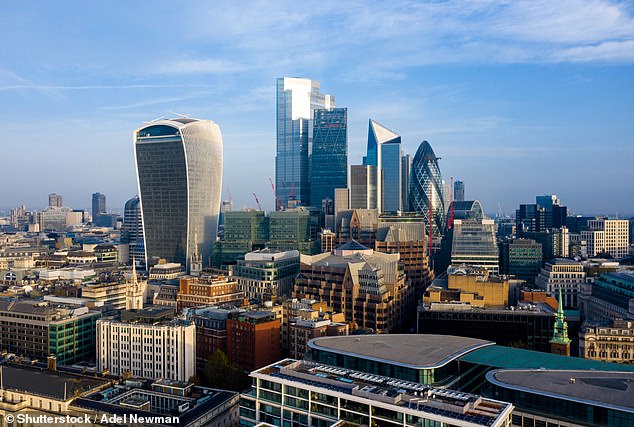- The MSCI All-Country World index increased by 9 per cent last month
- Wall Street was a big winner, with the Nasdaq having double-digit gains
- Britain’s blue-chip and mid-cap indices had a comparatively weak month
The FTSE 100 has made a strong start to the last month of 2023, adding more than 1 per cent after riding a wave of global stock market strength in November.
Global financial markets achieved substantial gains during November as investors took confidence from falling inflation and hopes interest rates have peaked.
The MSCI All-Country World index increased by 9 per cent last month, its best result since late 2020, when results from a Pfizer/BioNTech vaccine trial showed the jab was highly effective in protecting people from the Covid-19 virus.
Wall Street was the big winner, with the tech-heavy Nasdaq achieving double-digit gains and the S&P 500 jumping 8.7 per cent amid optimism that the Federal Reserve would carry out interest rate cuts sooner than previously expected.

Modest growth: Britain’s FTSE 100 and FTSE 250 indices had a comparatively weak month relative to others, although they still achieved growth
European markets also had a robust November, with the Stoxx 600 rebounding from three straight months of losses to grow by 6.45 per cent, according to the London Stock Exchange Group.
Fresh data on Thursday revealed eurozone inflation dropped to 2.4 per cent last month, much lower than forecast and reviving investor predictions of rate cuts in the new year.
Britain’s most prominent indices had a comparatively weak month relative to others, although they still achieved growth.
The blue-chip FTSE 100 ended November at 7,453.75, just 1.8 per cent higher than in late October, while the FTSE 250 rose 6.7 per cent to 18,233.5.
The former index was supported by a late rally on Thursday from financial, aerospace and defence stocks, such as Rolls-Royce Holdings, which was one of its best performers during the month.
Energy shares, including oil supermajors BP and Shell, provided an additional boost after OPEC announced a production output cut of one million barrels per day.
London’s mid-cap index enjoyed its strongest month this year, with travel stocks appreciate low-cost airline EasyJet and cruise operator Carnival among the best performers.
Commercial real estate groups, such as shopping centre owners Hammerson and British Land, also saw bumper gains as borrowing costs eased.
Analysts expect this momentum to preserve itself over the Christmas holidays in anticipation of high consumer spending, as well as weaker share dealing volumes over the period that typically reduces the risk of a sell-off.
Tom Stevenson, investment director for personal investing at Fidelity International, said: ‘While market superstitions and seasonal adages are rightly viewed with a hint of scepticism, the “Santa Rally” appears to be the gift that just keeps on giving.’
He added: ‘The yuletide market surge could be due to several factors; thin trading volumes around the Christmas holidays may amplify market moves.
‘The tendency of markets to rise more frequently than they fall might contribute to the holiday cheer.’
Analysts are increasingly believing markets will have a soft landing next year rather than a recession, although this will be dependent on whether interest rates and inflation come down as hoped.
In the UK, the Bank of England is expected to start reducing the base rate from its current 5.25 per cent level, given that inflation has already more than halved over the past 12 months.
As stocks and interest rates tend to have an inverse relationship, a fall in the latter will likely uplift the former as declining borrowing costs encourage businesses to improve investment.




